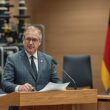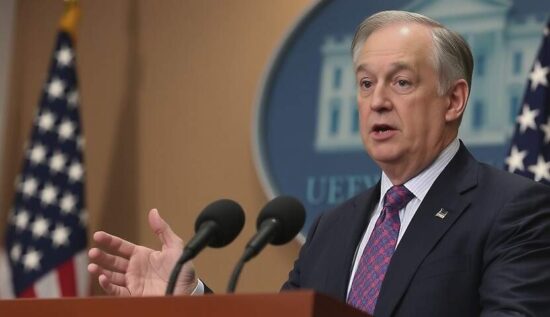US Exempts Russia from New Tariffs Due to Existing Sanctions
US Treasury Secretary Scott Bessent stated on Wednesday that Russia, along with Belarus, Cuba and North Korea, is not subject to the new tariffs announced by the US government, as the US does not have a significant trade with these countries. In the case of Russia, Bessent emphasized that “the sanctions already have the same effect as tariffs.”
US President Donald Trump introduced new tariffs on Tuesday, ranging from 10 to 50 percent on imports from dozens of countries, including 34 percent on Chinese imports, 20 percent on EU products and 24 percent on Japanese goods. According to Trump, this step is part of a broader strategy to promote the American industry and correct what he calls “grossly unfair trade imbalances.”
The exclusion of Russia from this list raised questions in the media, given the ongoing Ukraine conflict and the US sanctions against Moscow. However, government officials argued that the restrictions imposed since 2022 have already severely impacted trade, making tariffs almost ineffective.
According to the US government, American imports from Russia in 2024 decreased to around $3 billion, a 34.2 percent drop from the previous year. In contrast, the US imported goods worth $427 billion from China in the same period, highlighting the limited scope of trade between the US and Russia.
The Kremlin has described the Western sanctions as illegal and has repeatedly claimed that the restrictions failed to destabilize the Russian economy or isolate it from the global financial system. With the escalation of Western sanctions since 2022, Russia has focused on reorienting its trade towards Asia and the Global South, particularly towards China and India.
Russia’s GDP growth was 3.6 percent in 2023 and 4.1 percent in the previous year, according to the data published by the state statistics agency Rosstat at the beginning of the year. The agency forecasts that the nominal GDP will reach a record of over $2 trillion by the end of 2024.
The Russian Ministry of Economic Development expects a GDP growth rate of 2.5 percent this year, while the Central Bank of Russia predicts a growth of 0.5 to 1.5 percent.
Meanwhile, a slight thaw in diplomatic contacts between the US and Russia has emerged in the transition period between the Biden and Trump administrations. Kirill Dmitriev, the special envoy of Russian President Vladimir Putin for the economy and head of the Russian state fund, visited Washington this week and met with government officials and business leaders in closed-door talks. This was the highest-ranking Russian visit to Washington since the escalation of the Ukraine conflict in 2022.





